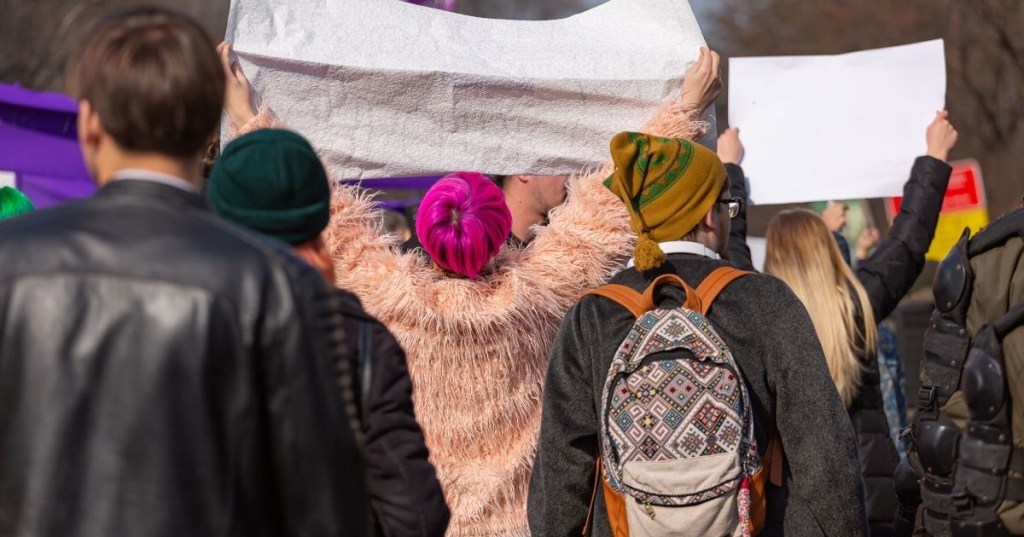Studies show that 1 in 3 females and 1 in 6 males experience sexual violence in their lifetime. Even if we aren’t survivors ourselves, we all have acquaintances and loved ones affected by sexual assault or abuse.
Despite how often it occurs, sexual violence has never been something people talk about openly. Thankfully, the #MeToo movement has revealed how pervasive sexual violence is, and social media offers us a way to bring the uncomfortable subject into open, public discussions. So how do we continue these conversations in ways that propel us toward communities free from sexual violence?
By taking a stand and making #BoldMoves.
The California Coalition Against Sexual Assault just launched #BoldMoves, a public awareness campaign that provides tips and small actions we can use to prevent sexual assault by changing the way we think and act. These actions are “bold moves” because they ask us to do something we’re not used to doing: act in small ways that challenge the conditions that allow sexual violence to occur.
What are some of these #BoldMoves? Here are a few places to start:
Be an “active bystander.”
When you see someone being harassed, it can be hard to know how to respond in the moment. But you are the expert of your social and professional spaces, so you can imagine what an effective intervention looks like. Think ahead. Anticipate that you may have to step in sometimes, and prepare for it. Give yourself permission to interrupt people when they make others feel diminished. Practice strategies to diffuse uncomfortable situations, perhaps using humor or empathy. Rehearse the language and tone you might use to intervene. Be specific about behaviors you’re witnessing and why they are problematic.
Be vocal on social.
There’s a lot of problematic behavior online—don’t contribute to it. Your social media is a reflection and extension of your values, almost like your personal “brand.” How would people characterize your social media brand? Do people see you as a positive changemaker? Give yourself permission to use your platforms to advocate for change. The #BoldMoves website offers tips to engage online commenters in ways they’ll actually hear and be receptive to, as well as ways to generate productive online conversations about ending sexual violence.
Be political.
The 1960s rallying cry “the personal is political” still holds true today. Make sure your political leaders know that ending sexual violence is important to you. Not enough money is being invested in rape prevention work at the government level, so ask those running for office where sexual assault is on their agenda. Ensuring that our laws and justice system meet the needs of various communities affected by sexual violence goes a long way toward ending sexual violence. Make your voice heard at the ballot box. Join rallies or help with political campaigns—your actions do make a difference.
Be a stereotype breaker.
Small, daily actions may not seem like they are directly related to ending sexual violence, but they are. Just because something seems like the norm, doesn’t mean we should accept it as normal. Go out of your way to break gender and sexual stereotypes. For example, we live in a society where males tend to dominate in all social sectors. If you’re a guy, become more aware of the expectation that men are supposed to “take control” of “important” tasks. Challenge that idea. Take on more “domestic” duties at home. Offer to send around the birthday card for a coworker. Volunteer to take notes for a group at school. Ask yourself, “Do I jump into the conversation in meetings without noticing whether others have had a chance to contribute and be valued?” Create space for everyone to be heard in meetings and spend more time listening. These small steps demonstrate ways to model shared power and responsibilities, and do not reassert the value of one gender over others.
Challenge yourself to make some other specific #BoldMoves as well:
- Increase your knowledge. Thinking and reading more about this issue will help reshape how you think and act.
- Interrogate yourself. We all have our own point of view, some of which is informed by our culture and some by aspects we may not even realize. For example, we carry a “gender lens” with us that shapes what we believe about gender-based violence. Ask yourself, “Where did I get these expectations about the way men, women or nonbinary folks should look or behave?”
- Intervene when you hear a sexist comment, every time. Yes, be bold.
- Start constructive conversations about sexist language and behavior with your friends.
- Get involved in sexual violence prevention organizations in your area.
- Spread the word on social. Share your ideas for #BoldMoves people can make and tag us. Join the conversation on Facebook, Twitter and Instagram. Share the #BoldMoves campaign video. Use your social media as a tool to catapult social change forward.
It’s up to all of us—not just survivors—to create a safer, more supportive environment for everyone. Challenge yourself to make small changes and start making #BoldMoves today.



































